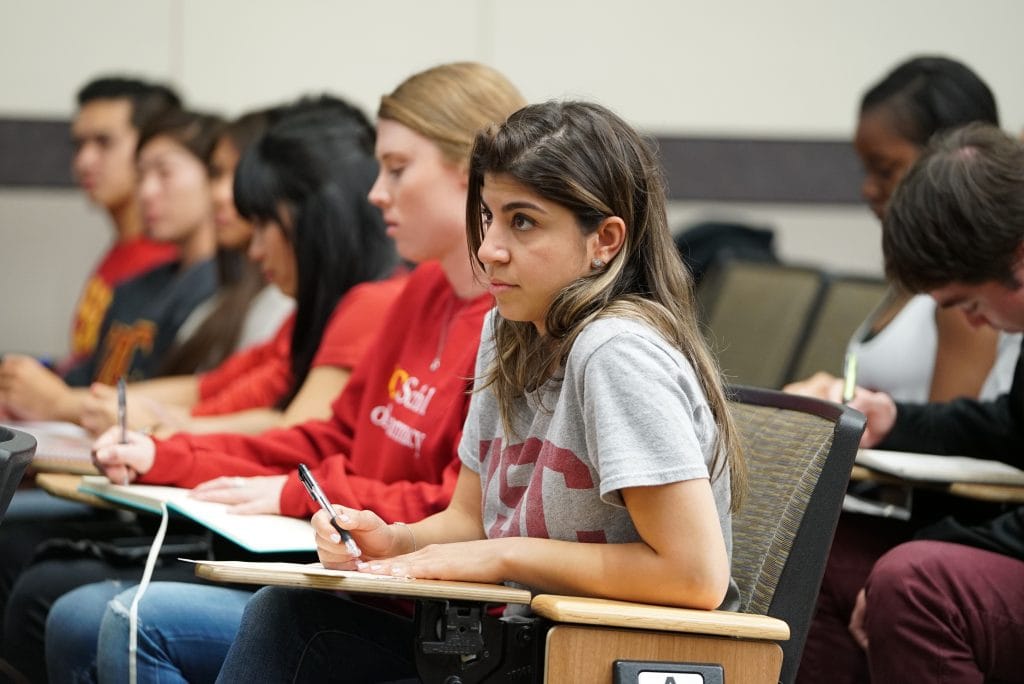USC School of Pharmacy graduates had a 98.7% North American Pharmacist Licensure Examination (NAPLEX) passing rate in the summer period of 2018, according to the National Association of Boards of Pharmacy.
Of the 155 first-time USC test-takers who took the examination between May 1 and August 31, 98.7% passed, a figure that is nearly 5% higher than the overall state pass rate of 94% and 7% higher than the national rate of 91.6%, from ACPE-accredited programs.
When looking at all NAPLEX test-takers during the same period, including repeat exam-takers and those from non-accredited programs, the gap between USC graduates and graduates from other schools is even higher – USC students had a 98.7% pass rate compared to the state pass rate of 91.4% and the national rate of 89.5%.
While NAPLEX passing rates sharply declined nationally two years ago following a change in the exam format in Nov. 1, 2016, USC has consistently maintained a strong track record of some of the highest first-time passing rates in California and in the U.S. In 2015, USC students passed at 99.43%, the highest rate in California and third in the country. In 2016, the USC pass rate was 97.4%, and in 2017, 96.9%.
“These results are a testament to the high quality of our curriculum and the dedication of our esteemed faculty, as well as the hard work and rigorous preparation on the part of our high-caliber students,” said Dean Vassilios Papadopoulos.
The NAPLEX measures a candidate’s knowledge of the practice of pharmacy. It is just one component of the licensure process and is used by the boards of pharmacy as part of their assessment of a candidate’s competence to practice as a pharmacist.
According to the National Association of Boards of Pharmacy, which administers the test, the 250-question computer-based exam tests a prospective pharmacist’s ability to ensure safe and effective pharmacotherapy and health outcomes, prepare and dispense medications, and implement and evaluate information for optimal health care.


